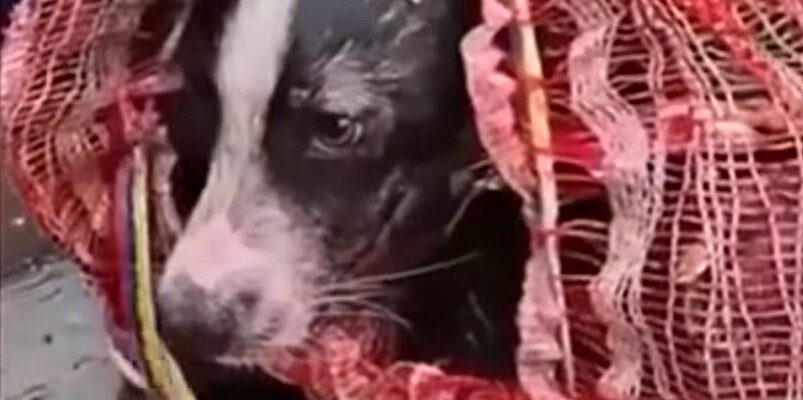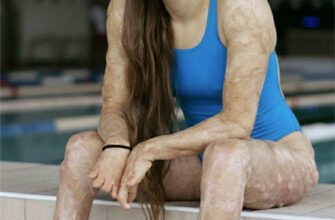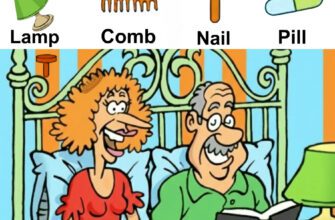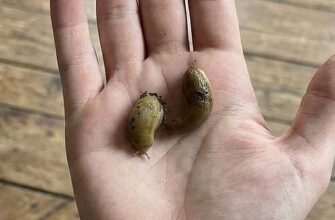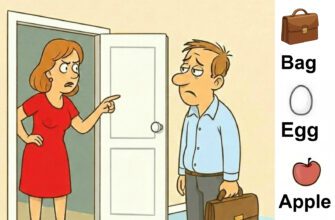The river that day smelled of seaweed, old wood, and the silence after the night’s rain. We got out early, the engine still coughing from the damp, and there was a low fog above the surface, as if someone had erased the horizon line with an eraser and forgotten to draw it in. We were picking up the debris after the storm—tin cans, bits of netting, other people’s habits left on the water. I remember a thin red thread stretching across the gray-green surface: a vegetable sack, an ordinary market net, twisted by the current. It spun along the side and sank as if someone invisible was pulling it from below by a rope.
At first I thought it was full of bottles or wet branches, but the bag didn’t behave like an inanimate burden: it knocked sharply against the side, shuddered, and this small response went through my fingers when I hooked it with the hook. “Stop, don’t tear!” Sergey shouted and handed over his gloves. The bag was heavy, tight, resisting both water and people. The two of us dragged it to the wooden stern, and the water, tangled in the knots, flowed down in dark streams. At that moment I already heard — not with my ears, but with my body — a dull, desperate sound, similar to a very quiet cough.
When I pry open the knot with my knife, the air suddenly straightened, and eyes peered out of the bag. Black, like the river itself under a downpour, and a light stripe on the forehead — as if someone had run a brush through wet fur. The eyes were so human that for a moment we all felt embarrassed by our own unpreparedness. “Is he breathing?” Ira asked. I nodded and heard my own voice, foreign and too quiet: “Alive… hold on, little one. Just hold on.”
He didn’t bark. He took a deep breath—heavy, rusty, as if someone had opened an old door inside him. Water and mud came out of his mouth. We cut the net, and with every movement I made, pink stripes appeared on his neck: where the rope cut his skin. The fur smelled of swamp and fear. My hands were shaking—not from the cold, we had been wet for a long time—from the feeling that sometimes only one uncertain breath fits between “we made it” and “we didn’t make it.”
“Careful… than closer to the knot,” Ira whispered and supported his head.
“Hold the flashlight,” Sergey said, even though it was already light.
“Just a little longer,” I said to the dog and to myself at the same time. “You and I. Listen, we’re here.”
Inside the bag, he was tied again—with a thin rope around his front paws. Someone was pulling the knot dry—tightly, with fierce patience. I c∪t this tre.a ćherous bond, and every millimeter was given as if the rope was not held by fur and skin, but by someone’s idea that to live or not to live is simply a matter of convenience. When the last coil came loose, he went limp, but didn’t fall—he quietly leaned his muzzle on my knee, and in that was a whispered “thank you” long before words that dogs don’t say.
I caught myself in a childish, senseless desire to apologize. “I’m sorry we’re slow. I’m sorry that we’re not all. I’m sorry that in a world where everyone has a place for their own bag, there was no air in yours.» He coughed, and each spasm seemed to knock black pebbles of night out of him. Ira dabbed his face with a clean cloth, Serhiy was already covering him with his jacket, and I couldn’t take my eyes off that white stripe on his forehead: it was like a small road leading upwards — to where dogs probably never drown.
«We need to see a doctor. Urgently,» Ira said. «I’ll call Lida, have her prepare an IV.»
«We’ve played our game,» Serhiy muttered into the phone, «we found ‘nothing special’: a bag on the water.»
«He’s not ‘nothing.’ He’s someone,» I said, and for the first time patted his neck the way you stroke friends when you can’t find the right words.
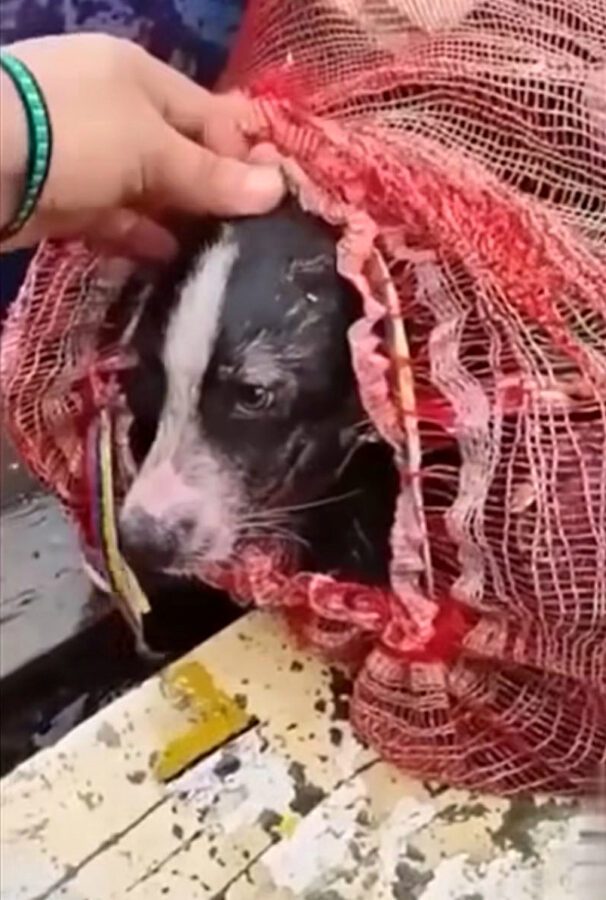
We turned the boat around. The river hissed under the engine, as if scolding: “Don’t be late.” I held the dog on my lap and kept talking, although I understood that I was talking more to keep quiet: “Stupid, do you hear? Life is not about bags. It’s about how to endure fear and wait for the hand. The hand is already here. Hold on, little one.” At some point he touched my wrist with his cheek. Timidly, as if asking permission to live.
The clinic smelled of peroxide, wool, and coffee. We rushed in without a queue, other people’s eyes glued to our wet bundle, but no one objected. Lida — small, always collected — looked at him and said without her usual cheerful “well, let’s see”: “Open the tap, warm water. I’ll be right there.” We were warming towels in the dryer, Ira was unpacking the first aid kit, and I was standing in the middle of the white office, thinking that sometimes the world can come together as quickly as that damn polypropylene rope is tightened.
The procedures followed one after another, as if someone had decided to rewrite his history from scratch. They treated the abrasions, removed the swelling, put in an IV, listened to his heart, and did an X-ray of his lungs. “The pulse is weak but steady. There are swallowing reflexes. The temperature has risen, which is good,” Lida said in her usual voice. He lay there, looking at us as if we were people who had suddenly remembered their purpose. Several times, when the needle touched the skin, he moaned softly, and I found myself ready to take that sound upon myself, like water takes on a stone.
“Shall we give him a name?” — Sergey asked at three o’clock, when the anxiety stopped pinching his eyes from the inside.
— Early, — Ira responded. — Let him come himself. Let him be born from what remains.
— The strip… as if someone had erased it, — I said, looking at my forehead. — Maybe Eraser?
The word sounded soft, and as if he had heard it, he moved his ear. “Eraser” did not c∪t the tongue and did not oblige to a legend. The name forgave — it erased what was supposed to be erased, leaving a clean sheet of paper for the future. And so he became Eraser the very second he received a warm blanket and a bowl of broth. He drank slowly, carefully, like an old man who is afraid to splash out a new morning.
Then there were days, long and short at the same time. Gumka learned to sleep without jerking, not to flinch from the noise of water in the batteries, not to flinch from the rustle of polyethylene. The first time someone opened a bag of food in the clinic, he crouched down on the floor, buried his nose in my shoe, and froze. “It’s just a bag, you hear? Just a bag,” I said, stroking his ear, feeling the uneven s.c αr bu.r חed by the rope. The wind outside the window stirred the leaves, and it was clear: the whole world would have to explain simple things, and we would be there until the world understood.
Sometimes, when he fell asleep, I imagined the person who was tightening the knot. Not a face, but emptiness. A warm kitchen that smelled of soup and vinegar, and hands that were throwing the rope around, like “what’s up there, where are the scissors?” I tried to find some reason for this, even the smallest one, that would weigh more than a stone in a bag. But there was no reason. There was only laziness to be human, tight as an eight-strand cord. I stopped talking to this emptiness in my head and started talking to Gumka, because where there is emptiness, words are meaningless, but where there is life, they can still be useful.
“Are you afraid of water?” I whispered as I washed his paws. “Nothing. We will retrain the memory. Look: water can be warm. Water can embrace. Water is about washing, not dro.w חing.”
He inhaled the steam and slowly relaxed his shoulders. Sometimes he sat down and stared at the stream for a long time, as if trying to understand where it was going and whether it could be turned back. Then I remembered that first breath in the boat and thought that everything could be turned back, if you were very patient.
Only two traces of his past were revealed: a slight dent on his neck from a collar he had once worn, and neatly trimmed claws. This meant that Gumka had long since had a “before” — a home, someone nearby, maybe even children’s hands that smelled of pencils. So, someone once knew how to stroke, and then unlearned it, like people unlearn how to say “sorry.” We didn’t argue about it — any version sounded like an excuse for someone else’s weakness. We simply learned to live according to a schedule: walk, grooming, food, sleep, and between the lines — small victories.
The first victory was a tailed shadow. One morning he looked at Ira, took half a step and timidly wagged his tail. Not widely — as if checking whether something important inside would break from joy. The second victory was trust in the stairs: before, he would lean on all four paws when he saw that he had to go down the stairs ahead. We didn’t pull, we waited, we persuaded, and one day he himself — awkwardly, funny — went down the second flight. The third success remained my personal one: at the end of a long day, he put his paw on the upper part of my boot and, without raising his head, fell asleep. And I realized that I was catching my breath so as not to break this little trust with my human noise.
— Maybe we shouldn’t post this? — Serhiy said one evening, when we were flipping through photos. — It’s hard for people to read this.
— It’s hard to be in a bag, — Ira answered. — Reading is just opening your eyes and not closing them right away.
— And what if this is another story that doesn’t change anyone? — Serhiy didn’t give up.
I looked at Gumka, who was half asleep, twitching his mustache, and said: — He’s already changed us. That’s enough to tell the truth.
There were no unnecessary details in the truth: not about how the rope ate the skin, nor about how boats sometimes calmly pass through the water, not noticing what was floating next to them. There was something else in the truth — how sometimes one touch cancels the cold, how in the quietest whispers the loudest hope grows. We didn’t invent heroism where there was only duty: to notice, reach out, warm. Everything else was done by the life that Gumka, without even suspecting it, had chosen the moment he took a deep breath in the boat.
A week passed, and we went out to the river for the first time. He stopped by the water and looked at the current for a long time, the way people look at old letters: not reading, but listening. I held the leash loosely, almost not feeling it in my hand, that’s how easy our walks became, and I said: «Look, this is not the enemy. This is the road. Only we don’t go there anymore.» He inhaled the air, which smelled of old fear and new freedom, and slowly took a step back. I smiled. The world rearranged itself a little to make way for this movement.
The other day a man and his son came up to us. He squatted down and, without extending his hand, asked: «Can I take a look?» Gumka looked at me, at Ira, at the child, and suddenly took a step forward himself. The boy held out his hand silently, and Gumka carefully touched his nose to it, as one touches water, checking to see if it was warm. “What’s his name?” the man asked. “Eraser,” I replied. “A good name,” he said. “Some things really do have to be erased so there’s room to write on.”
In the evenings, when the clinic was quiet, we sometimes thought back to that day on the river. In memory, the sack was always heavier than it really was, and the boat was smaller. Maybe that’s how memory works: it makes evil heavier so we don’t pick it up as a trifle. But each time, another weight was added to that heaviness—how light Gumka’s head became when he rubbed his forehead against my knee; how he learned to wrinkle his nose in pleasure when his fur was dried; how Ira laughed when he first pursed his lips uncertainly, as if he were going to smile like a human.
Sometimes I still spoke to him out loud, as if to a human, taking advantage of the fact that dogs do not know how to be offended by our weak formulations. “You know, we pulled you out of the river,” I said, “but it seems to me that you pulled us out. You lifted us out of our usual “you can’t change anything,” out of fatigue, out of the way of looking away. You didn’t need a single word. You just breathed. And that was enough for everything around to become different.” Gumka answered with silence—the silence from which new life emerges.
I don’t know how his story will end. Maybe there is a house somewhere where children’s pajamas rustle and in the mornings it smells of semolina porridge, and there they will tell him that water is safe and ropes are only for swings. Maybe the house is still ahead, and he will start small — with a rug by the radiator and a bowl of warm broth. But I know exactly where the main point in this story is placed. It is not at the moment when we cut the net, or even when he first wagged his tail. It is where someone will one day decide that “more convenient” is not the same as “right”. And then no bag will appear on the water.
Meanwhile, the river goes its own way. It carries leaves, light, sometimes garbage, and more often than not — reflection. And every time, crossing the bridge, I look down and see not the red bag, but a white stripe on the forehead, like chalk, with which someone underlines something important. The world again and again pretends to be in a hurry, but now we have our own slow ritual: to stop, breathe, silently say “alive”. That is not enough, others will say. But sometimes it is this “little” that outweighs the whole bag that was dragging me down.
And when the silence at night becomes thick as water, I remember how we opened that bag and were shocked — not by what we saw, but by the very fact that such a thing is possible. Now I know: with the same surprise, you can also discover the opposite — that it is possible to catch up, to notice, to pull out, to warm up; it is possible to find a name that erases the past and a place where it no longer hurts. We pulled him out of the river, but maybe in reality the river brought him to us as proof that even in the current there is a plan. And then — just walk alongside and not back down until he has his own bank.
Gumka sleeps, putting a paw under his cheek, and in his sleep he twitches his tail. It begins to seem to me that somewhere inside the water is writhing — but not from fear, but from a living, stubborn movement. And I whisper in this night, not afraid that they won’t hear me: «Quiet, little one. Everything has already been written from a new line.»
➕
